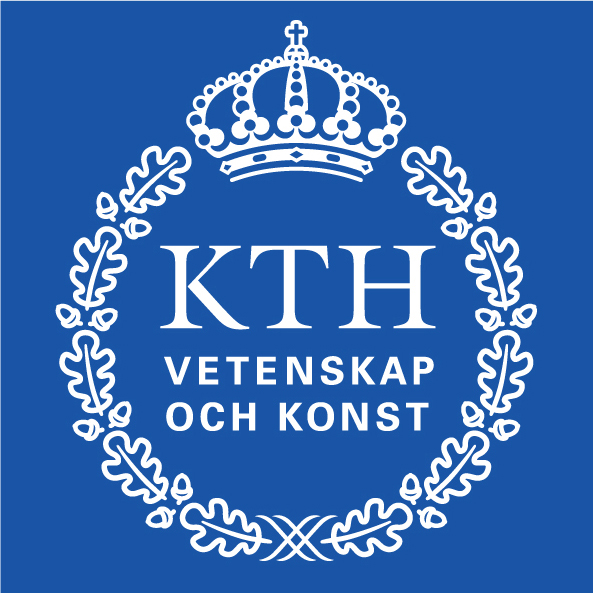
EL3340 Introduction to Model Order Reduction
Ph.D. course, 7 credits, Spring 2019
In
engineering and science it is often desirable to use
the simplest possible mathematical model that “does the job”. First-principles
modeling or system identification often result in dynamical models with an
unnecessarily large state space. Model (order) reduction concerns the systematic
approximation of such models. There are many advantages of working with models
with a low-dimensional state space. For example, low-dimensional models are
easier to rigorously analyze and faster to simulate. Model-reduction methods have successfully been used to solve large-scale problems in
areas such as control engineering, signal processing, image compression, fluid
mechanics, and power systems. In this Ph.D. course, we give an introduction to
some available reduction techniques, as well as to the required underlying
mathematics.
Instructor: Henrik Sandberg
Meeting times: See schedule below. First lecture on
Tuesday March 19th, 2019.
Prerequisites:
Basic linear systems theory (state-space
realizations, Laplace transforms etc.), matrix theory, and basic
MATLAB-programming.
To enroll, or to receive course updates, please
send an email to Henrik
Sandberg
Intended learning outcomes
After the course, the student
should:
·
be able to
distinguish between difficult and simple model-reduction problems;
·
have a
thorough understanding of Principle Component Analysis (PCA) and Singular Value
Decomposition (SVD);
·
understand
the interplay between linear operators on Hilbert spaces, controllability,
observability, and model reduction;
·
know the
theory behind balanced truncation and Hankel-norm approximation;
·
be able to
reduce systems while preserving certain system structures, such as
interconnection topology;
·
be able to
reduce linear feedback controllers while taking the overall system performance
into account; and
·
to understand, and be able to contribute to, current research
in model order reduction.
Course
Main Content
Linear time-invariant systems,
state-space models, truncation, residualization/singular
perturbation, projection, Kalman decomposition,
norms, Hilbert spaces L2 and H2, Banach space
H-infinity, POD, SVD, PCA, Schmidt-Mirsky theorem,
optimization in Hilbert spaces, reachability and observability Gramians, matrix Lyapunov
equations, balanced realizations, error bounds, frequency-weighted model
reduction, balanced stochastic truncation,
controller reduction, small-gain theorem, empirical Gramians,
Hankel-norm, Nehari theorem, Adamjan-Arov-Krein
lemma, optimal Hankel-norm approximation
Schedule
Tentative Program
|
Date |
Time |
Event |
Room |
Topic |
|
2019-03-19 |
10:15-12 |
Lecture 1 |
MV10* |
Introduction. The
model-reduction problem. |
|
2019-03-21 |
10:15-12 |
Lecture 2 |
MV10* |
Model truncation,
singular perturbation, and Padé approximation,
model structures (port-Hamiltonian) |
|
2019-03-26 |
10:15-12 |
Lecture 3 |
MV10* |
Model structures
(Laplacian matrices), heuristics (Padé, half rule, pole/zero truncation) |
|
2019-03-28 |
10:15-12 |
Lecture 4 |
MV10* |
Review of linear
systems and Hilbert spaces. H2 and H-infinity norms. |
|
2019-04-02 |
10:15-12 |
Lecture 5 |
MV10* |
POD/PCA/SVD-based
reduction. |
|
2019-04-04 |
10:15-12 |
Lecture 6 |
MV10* |
Gramians and balanced realizations. |
|
2019-04-09 |
13:15-15 |
Lecture 7 |
MV10* |
Balanced
truncation. |
|
2019-04-11 |
10:15-12 |
Lecture 8 |
MV10* |
Weighted balanced
truncation and controller reduction (part 1). |
|
2019-05-02 |
10:15-12 |
Lecture 9 |
MV10* |
Optimal
model-order reduction in the Hankel norm. |
|
2019-05-07 |
10:15-12 |
Lecture 10 |
MV10* |
Optimal
model-order reduction in the H2/H-infinity norms. |
|
2019-05-14 |
13:15-15 |
Lecture 11 |
MV10* |
Controller
reduction (part 2): Coprime factorization and gap metrics |